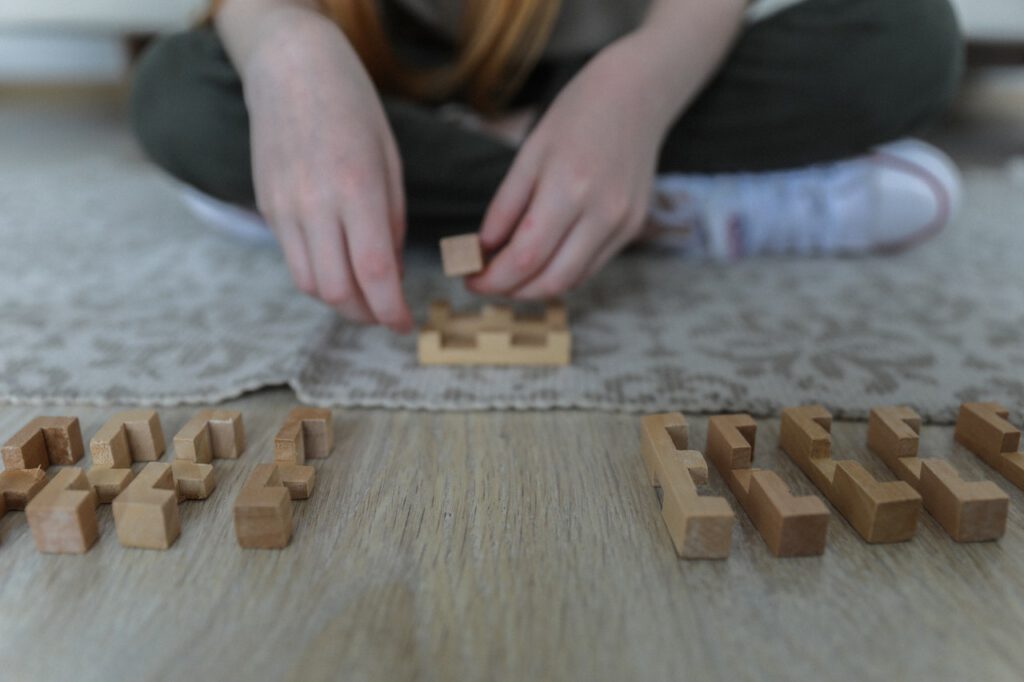“Puzzles” is a catch-all term to describe all sorts of games that challenge the player’s thinking abilities. They include mind teasers, Sudoku, chess, jigsaw puzzles, word puzzles, and so on. They start with an interesting idea, and the player is always trying to find a solution to the problem. All puzzle games are fun, improve problem-solving skills, and pass the time with friends.
Below are different types of puzzles worth playing;
Word Puzzles
Word puzzles like crosswords, word searches, and anagrams provide everyone with a mental workout. They can be very enjoyable, but they also have many practical benefits. Crosswords provide an excellent way to expand your vocabulary and learn new words. They also help improve your spelling and grammatical skills as you work through the clues and fill in the answers.
Word searches are great for children because they can help build their vocabulary and spelling skills as they work through the clues to fill in the answers. There are thousands of word search puzzles available in books or online, so it is easy to find one that suits your ability level or interests. Anagrams can help you improve your knowledge of the English language. You can not only find anagrams of words that you are familiar with but also discover new words by rearranging letters from existing words and phrases.
Maths Puzzles
Math puzzles are the most popular genre of puzzles. They come in two kinds: general math puzzles and programming puzzles. Additionally, although they may not be considered a “puzzle” as such-there are cool math games for children that can also tease their brains a little. Games suited for younger kids like Tiny Fishing can be equally challenging and fun for them, like math puzzles are challenging for older kids and adults. General math puzzles are those where you start with a bunch of data and use logic to figure out what it implies. Programming puzzles are closer to programming problems, except they’re intended to be fun for players to solve.
A crossword is a cryptic puzzle. There are other types of cryptic puzzles, such as the anagram, where you have to rearrange the letters of one phrase to form another. Cryptic puzzles are fun because they’re like little detective stories. You are given a few clues and have to figure out what they mean.
Cryptic Puzzles
Cryptic crosswords are not much like other crosswords. In a non-cryptic crossword, each square is filled with a letter that is part of the answer. In a cryptic crossword, there will usually be extra letters in each square, and you need to figure out how they relate to the clue as well as how they fit into the grid.
Logic Puzzles
Logic puzzles are a type of problem-solving puzzle in which the player is presented with a logical and mathematical problem, usually in the form of a grid or series of grids. The player has to use their logic skills to deduce which symbols go into each grid square.
Pattern Guessing puzzles
A pattern guessing puzzle is where you are given a pattern and an incomplete solution, and you have to fill in the missing parts. For example, you might be given an incomplete sequence of numbers or a partially revealed image.
In this type of puzzle, you need to reveal the pattern that has been used to generate the information you are given. There are many variations on this theme. Some examples include:
An incomplete sequence of numbers: for example, 5 7 9 11 13 15 17 ? 31 33 35 37 39 41 43 ?
Riddle Puzzle
A riddle is a puzzle with a narrative. In a typical riddle, you are given a clue that describes something concrete or abstract. Then you have to figure out what it refers to. The clues tend to be deliberately misleading, and the fun is in figuring out how the answer is different from what you thought it meant.
Sudoku
The sudoku puzzle is a grid that has 9 rows, nine columns and nine sub-grids. The objective of the puzzle is to fill the cells in with numbers that satisfy three conditions:
- Each row should have all numbers from one to nine
- Every column should have all numbers from one to nine
- Every sub-grid should reflect all numbers from 1-9
You can easily make a Sudoku puzzle of your own by randomly filling in some cells with numbers. The objective of the puzzle is for the player to complete the rest of the empty cells with numbers from 1 to 9. If there are no errors, then you have completed the puzzle.
Key Takeaway
There are more varieties of puzzles available than you might think. If you can’t find a specific kind of puzzle to challenge your mind, it’s probably just a matter of looking in the right place. And while we don’t have a definitive ranking based on difficulty or enjoyment factors, word puzzles, and Logic games would probably take the cake for us if we had to choose favorites from this list.

 by Carl Bunton 3 years ago
by Carl Bunton 3 years ago 